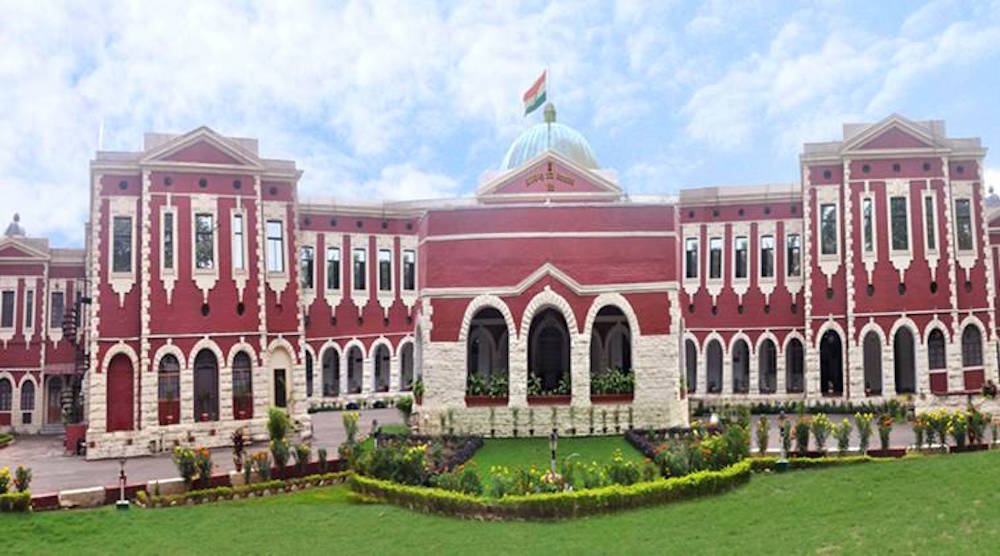Exclusion of Hindi from the list of mandatory languages for appearing in Jharkhand Staff Selection Commission exams: PIL in Jharkhand High Court

A. Concerns raised in PIL
The exclusion of Hindi from the list of mandatory languages that candidates appearing for Jharkhand Staff Selection Commission exams was on Tuesday brought under the scanner of the Jharkhand High Court. A PIL to the effect was filed by Ekta Vikas Manch during the day. The court is yet to give a date for a hearing. The Manch, a non-governmental organisation headquartered at Seraikela, filed the PIL claiming that the rules formulated by the government to conduct the examinations are violative of Fundamental Rights.
B. Background of Dispute
A state Cabinet of Jharkhand in its meeting on August 5 had okayed a proposal that candidates desirous of jobs in the state should have knowledge of local culture, language, and tradition and they should attain at least 30 per cent marks in a regional or tribal language which will be added in the scores while preparing merit list. English and Hindi were concerned, these would be qualifying papers, and marks obtained in the subjects would not be added while preparing the merit list. It was decided that the candidates could opt among Mundari, Kharia, Ho, Santhali, Khortha, Panchpargania, Bangla, Urdu, Kurmali, Nagpuri, Kurukh, and Odia languages for state-level examination.
C. Difference between National and Official Language
The Constitution is silent on the issue of a national language but mentions official language. The Eighth Schedule of the Constitution makes note of 22 regional languages, including Hindi. However, the discussion began when, under Article 343 of the Constitution, the Official Languages Act, Hindi in Devanagari script and English were designated as the “official languages” — that is, languages used for official correspondence. An Official Language Act state it is meant to provide for the languages which may be used for the official purposes of the Union, for the transaction of business in Parliament, for Central and State Acts and for certain purposes in High Courts. The Constitutional provisions relating to the Eighth Schedule occur in articles 344(1) and 351 of the Constitution.
Article 351 of the Constitution provides that it shall be the duty of the Union to promote the spread of the Hindi language to develop it so that it may serve as a medium of expression for all the elements of the composite culture of India and to secure its enrichment by assimilating without interfering with its genius, the forms, style and expressions used in Hindustani and in the other languages of India specified in the Eighth Schedule, and by drawing, wherever necessary or desirable, for its vocabulary, primarily, on Sanskrit and secondarily on other languages. It would thus appear that the Eighth Schedule was intended to promote the progressive use of Hindi and for the enrichment and promotion of that language.
C. The Law Commission 2008 Report on Introduction of Hindi in Supreme Court
“NON-FEASIBILITY OF INTRODUCTION OF HINDI AS COMPULSORY LANGUAGE IN THE SUPREME COURT OF INDIA” mentions on Page 78-
“Language is a highly emotional issue for the citizens of any nation. It has a great unifying force and is a powerful instrument for national integration. No language should be thrust on any section of the people against their will since it is likely to become counterproductive. It is not merely a vehicle of thought and expression, but for Judges at the higher level, it is an integral part of their decision-making process.
Judges have to hear and understand the submissions of both sides, apply the law to adjust equities. Arguments are generally made in higher courts in English and the basic literature under the Indian system is primarily based on English and American textbooks and case laws. Thus, Judges at the higher level should be left free to evolve their own pattern of delivering judgments.
It is particularly important to note that in view of the national transfer policy in respect of the High Court Judges if any such Judge is compelled to deliver judgments in a language with which he is not well-versed, it might become extremely difficult for him to work judicially. On transfer from one part of the country to another, a High Court Judge is not expected to learn a new language at his age and to apply the same in delivering judgments.
At any rate, no language should be thrust upon the Judges of the higher judiciary and they should be left free to deliver their judgments in the language they prefer. It is important to remember that every citizen, every Court has the right to understand the law laid down finally by the Apex Court and at present, one should appreciate that such a language is only English.
The use of the English language also facilitates the movement of lawyers from High Courts to the Apex Court since they are not confronted with any linguistic problems and English remains the language at both levels. Any survey of the society in general or its cross-sections will clearly substantiate the above proposition which does not admit of much debate, particularly in the present political, social and economic scenario.”
E. Recent PIL on Language by Madras High Court
The Madras high court recently in August 2021 told the Union government that it is duty-bound to communicate in English with those states that have not adopted Hindi as their official language, news reports said.
The statement by Madras HC came on on a Public Interest Litigation (PIL) filed by Madurai Lok Sabha MP S Venkatesh.
Referring to the Official Languages Act 1963 and the Official Language Rules 1976, the court noted, “Once a representation is given in English, it is the duty of the Union Government to give a reply in English only which will also be in consonance with the statute, viz., the Official Languages Act.”
Image: The Hindustan Times





